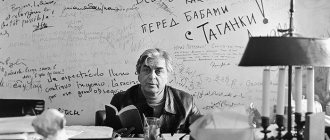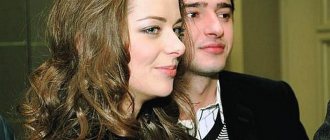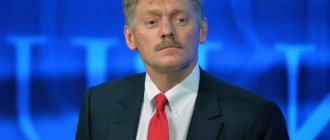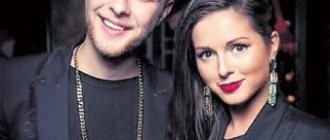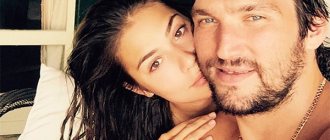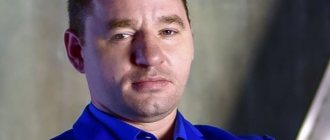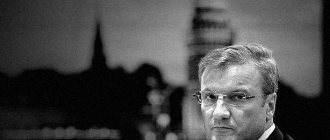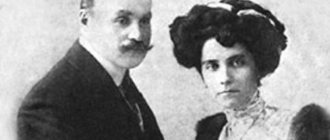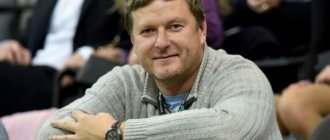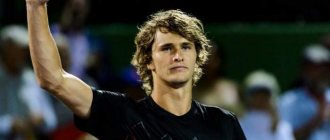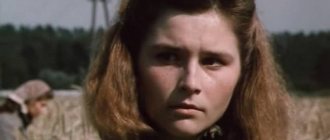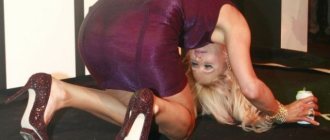Height, weight, age. How old is Vladimir Putin?
The masses want to know absolutely everything about this famous political figure. How much does our President weigh and how long has he lived in the world, and what does he eat for breakfast?
Vladimir Putin's height, weight, and age are not state secrets. The future President of the Russian Federation was born back in 1952, which means he was 64 years old.
Vladimir Vladimirovich weighs neither more nor less than 77 kilograms with a tall height of 1.70. However, this indicator is constantly changing, and to a lesser extent. Weight loss is influenced by activity and a sports lifestyle.
Height, weight, age of Vladimir Putin photo
President and Prime Minister of the Russian Federation
You should always think about the future, always look forward
On March 26, 2000, Vladimir Putin was elected President of the Russian Federation, and on March 14, 2004, he was elected President of the Russian Federation for a second term. On May 8, 2008, by Presidential Decree, he was appointed Chairman of the Government of the Russian Federation.
Vladimir Putin was elected President of the Russian Federation on March 26, 2000. On May 7, 2000, he took office.
In his inaugural speech, Vladimir Putin said: “We have common goals, we want our Russia to be a free, prosperous, rich, strong, civilized country, a country that its citizens are proud of and respected in the world.”
He added that his activities will be guided exclusively by state interests. “It may not be possible to avoid mistakes, but what I can and do promise is that I will work openly and honestly,” Putin said.
Biography of Vladimir Putin
Vladimir Putin was born on October 7, 1952 in St. Petersburg in an ordinary family. In contrast to persistent rumors, we can safely say: the family of the future President had nothing in common with the party elite.
All his relatives have devoted their lives to peasant labor since ancient times. None of them were wealthy and did not own serfs. All ancestors on the maternal and paternal lines worked honestly and helped people in any way they could.
The biography of Vladimir Putin resembles the life of the most ordinary person of that time. His mother Maria Shelomova worked at the Egorov plant, and then was a housewife and gave all her love to her son Volodya. The woman was awarded the medal “For the Defense of Leningrad.”
Biography of Vladimir Putin photo
There were also sons Albert and Victor. The eldest son died long before the start of the Second World War, and two-year-old Vitya died of diphtheria during the siege of Leningrad. The boy was buried at the Piskarevskoye cemetery.
Father Vladimir Spiridonovich participated in the Great Patriotic War and was a submariner. After the war he was a security guard at a carriage factory. Later he became a foreman at the same plant named after Egorov. This brave man was wounded during the fighting for the Nevsky Piglet. Vladimir Spiridonovich was awarded the Order of the Patriotic War, 1st degree.
The most famous person in the family was the grandfather. Spiridon Putin wonderfully cooked and fed the entire party leadership, including Stalin.
After the war, the Putin family moved to a modest communal apartment on the fifth floor. For little Volodya, this apartment seemed like a real palace, although it did not have any amenities.
In his childhood, Volodya loved to watch films about intelligence officers and dreamed of serving his Motherland. He also wanted to become a pilot, and before that a sailor.
He studied poorly and repeatedly violated discipline. The boy's biggest trouble was being late. He constantly overslept and came to school in the middle of class. He was scolded for being sloppy in his clothes, but this happened because Volodya did not have time to dress well before starting classes. Conversations between the class teacher and the parents did not produce any results.
The boy studied at school 193 in Leningrad, and after the eighth grade he moved to specialized school 281 with a chemical focus.
He was a hooligan, loved and knew how to fight for a just cause. For a long time he studied in the judo section, where he achieved great success. Thanks to his teachers, who saw in the boy high potential, a tenacious mind and an excellent memory, Volodya began to study without grades. He began to develop his ability in foreign languages.
Already in the sixth grade, the boy set himself a task: to change for the better. He began to study well and headed the Council of the Pioneer Detachment. Volodya realized that to become a leader it is not enough to fight well, you need to be an intelligent and educated person.
To become an experienced intelligence officer, he graduated from a ten-year school and Leningrad State University, receiving a higher legal education. While still in his first year at university, Putin applied to the KGB and immediately after receiving his law degree he was sent to serve in the KGB. At the same time he became a communist; later during perestroika, he did not leave the party.
Vladimir Vladimirovich was surprised that his sports training and higher education were not enough to become a scout. He was trained in intelligence schools for two years.
In 1977 he began serving in the KGB, where he established himself as an excellent specialist. A year after another retraining, Vladimir was sent to Moscow to the Higher School of the State Security Committee.
For a long time he worked in the investigative department of internal intelligence, studied German. He completed an internship and training under the name Platov, became the head of the educational department and one of the best students.
In 1985, Vladimir headed to the GDR, where he headed the House of Friendship between the USSR and the GDR in Dresden. In 1989 he was awarded the first medal “For Merit” and received the next rank of lieutenant colonel for his length of service.
When his business trip to Dresden ended, Putin surprised his leadership by not wanting to move to the main KGB of the USSR, located in Moscow. He was satisfied with the service in Leningrad. He worked as an assistant to the rector at his native institute, Leningrad State University, and wrote his Ph.D. thesis.
In the nineties, he left his service in the KGB and became an adviser to the mayor of St. Petersburg, Anatoly Sobchak. He was involved in organizing a unique currency exchange and contributed to the entry of German trading companies into the Russian market. With the participation of Vladimir Vladimirovich Putin, the first international German-Russian bank was organized.
He headed the Committee on External Relations in St. Petersburg and was the first deputy prime minister in 1994. However, this did not prevent him from becoming the organizer of the Goodwill Games, after which American intelligence became seriously interested in his modest person.
Already in 1995, Vladimir Vladimirovich headed the branch of the NDR party in St. Petersburg. Soon he was sitting firmly in the chair of the Secretary of the Security Council.
In 1996, some changes occurred in Putin's life: his employer Anatoly Sobchak failed in the gubernatorial elections, but the talented civil servant was invited to Moscow. There he became deputy manager of affairs under the then President of Russia Boris Nikolaevich Yeltsin. Vladimir Vladimirovich headed the legal department and management of foreign property.
Biography of Vladimir Putin photo
Already in 1998, Putin headed the Federal Security Service of the Russian Federation. He quickly reformed and brought order to this structure. To all the main posts, Vladimir Vladimirovich appointed trusted people with whom he served in the KGB.
He was the first civilian director of the Federal Security Service, since he refused the next rank of major general.
He also managed to serve as Secretary of the Russian Security Council.
Changes occurred in 1999, when Boris Nikolayevich Yeltsin appointed a talented politician as Prime Minister. This appointment coincided with the armed conflict in Dagestan, from which, thanks to Putin’s talented and competent actions, Russia emerged victorious.
Already in December of the same year, Yeltsin resigned during his New Year's address. And the country entered the new year with a new President - Vladimir Vladimirovich Putin.
Since 2000, Putin has officially become the President of Russia, having received 52% of the votes in the first round.
He was re-elected to this post several times, alternating in the presidential chair with Dmitry Anatolyevich Medvedev. In 2004, Vladimir Vladimirovich received 73% of the votes of his voters.
He carried out a number of necessary reforms in almost all areas. He devoted a lot of time and effort to the social sphere, namely, ensuring a decent life for children, the elderly and the disabled.
In 2010, Vladimir Putin was recognized as one of the most influential people in the world, ranking fourth according to Forbes. Already in 2011, in the same ranking, he already took second place of honor.
There is so much that hasn’t been written online about the height of Vladimir Vladimirovich Putin. When we were collecting material for this review, we involuntarily came across various articles and videos about all sorts of global conspiracies, about doubles of the president and other nonsense. On foreign websites they generally believe that our president is very short. One American newspaper directly stated that Putin’s height is between 5’2″ and 5’5″, which translated into centimeters is from 157.48 to 165 (well, this is just ridiculous). In our domestic media, the president’s height ranges from 169 to 172 (sometimes 175) centimeters. The most popular version is 170. We will check it.
First, let's look at a photo where Vladimir Vladimirovich stands next to Conor McGregor, whose height is 175 centimeters. As you can see, the difference between them is only 5 centimeters (and not 15, as some foreign sources claim).
Leonardo DiCaprio's height is 180 centimeters. Here he is 10-11 centimeters taller than the president. The photo is not the best for accurately determining his height, since there may be a minimal error due to the angle at which the photo was taken, but nevertheless, it is clearly clear that Putin is clearly taller than 160-165 centimeters.
Next, let's look at a couple of photos from one event, where we compare Vladimir Putin with Steven Seagal, whose height is 192 centimeters. In the first photo, the actor tilted his head forward slightly, causing him to lose a couple of centimeters. In both cases, taking into account the error due to posture, the president’s height was again at around 170.
Fedor Emelianenko's height is 182 centimeters. Here he is 11-12 centimeters taller than Vladimir Vladimirovich.
Next, let's look at several photos taken at different times, where we compare the height of Vladimir Putin with the height of Donald Trump (186 cm). In all three cases, the difference between the politicians remains unchanged, and Vladimir Vladimirovich’s height again stopped at 170 centimeters.
Jean-Claude Van Damme's height is 177 centimeters. Here he is exactly 7 centimeters taller than the president.
And finally, consider a photo from the World Cup, where Vladimir Vladimirovich stands next to Pele (Edson Arantis do Nascimento). In his youth, the football player was 173 centimeters tall, but now he is over 77 years old, and his height is around 170 centimeters. As we can see, there is practically no difference between him and Vladimir Putin. After analyzing several photos, we came to the conclusion that the most popular version about Vladimir Vladimirovich Putin’s height of 170 centimeters is reliable.
Personal life of Vladimir Putin
The President of Russia is a sincere and open person. The personal life of Vladimir Putin is not a secret behind seven seals.
Vladimir Vladimirovich was married and has beautiful daughters. He doesn't really like to talk about their lives, but he says that he is proud of the girls. The personal lives of both daughters are carefully protected from attacks by journalists.
Personal life of Vladimir Putin
Putin's only terrible secret is his relationship with Alina Kabaeva. This gymnastics star has always been famous for her romances with strong and influential men. A woman twenty-five years younger than Putin, she retired as a gymnast and devoted herself entirely to her political career.
No one can say for sure whether the novel actually exists or not. Vladimir Putin himself claims that there is no love affair and there never was. He is very sensitive to these kinds of rumors and even closed the editorial office of the tabloid newspaper that was actively spreading them.
Moscow. Prime Minister with a vision
In 1996, Vladimir Putin moved with his family to Moscow, as he was offered the post of Deputy Administrator of the Presidential Administration of the Russian Federation. “I can’t say that I didn’t love Moscow. I just loved Peter more. But Moscow, quite obviously, is a European city,” Putin recalls.
His career developed rapidly. In March 1997, Putin became Deputy Head of the Administration of the President of the Russian Federation, Head of the Main Control Directorate of the President of the Russian Federation. Despite his workload, in 1997 he defended his PhD thesis in economics at the St. Petersburg State Mining Institute. In May 1998, Putin was already the First Deputy Head of the Presidential Administration of the Russian Federation, in July 1998 he was appointed director of the Federal Security Service of the Russian Federation, and at the same time, since March 1999, Secretary of the Security Council of the Russian Federation.
And already in August 1999, Vladimir Putin became Chairman of the Government of the Russian Federation. Russian President Boris Yeltsin offered him this post.
Putin recalls it this way: “Boris Nikolayevich invited me to his place and said that he had an idea to offer me the post of Prime Minister. <…> By the way, in a conversation with me he did not utter the word “successor”. Yeltsin spoke of a “premier with a perspective,” that if everything went well, he would consider it possible.”
According to Putin, it was interesting and honorable for him to work in this position: “I thought, well, I’ll work for a year, and that’s good. If I help save Russia from collapse, then I can be proud of that.”
Vladimir Putin's family
Currently, the President of the Russian Federation lives alone. Vladimir Putin's family includes his ex-wife, daughters and beloved animals.
Putin has several purebred dogs that were given to him: an Akita Inu, a couple of poodles, a Labrador. The President also has a dwarf horse named Vadik and a goat called Skazka.
Vladimir Putin's family
Putin Vladimir Vladimirovich
Quotes
Our intelligence service does not spy on everyone and eavesdrop on something, unlike you. You, apparently, judge by yourself. We don't have that much money. July 16, 2020
Ukraine doesn’t really want to develop relations with the Russian Federation, but it gladly receives our money for transit. May 20, 2020
Where shale gas is extracted, people have black sludge coming out of their taps instead of water. April 25, 2013
Companies invested certain funds in one or another project on the Russian shelf and were then forced to leave these projects with losses, and who was punished? They shot themselves in the leg - that’s all. November 2020
Terrorism poses an even greater threat than it seems. July 16, 2020
After that, as soon as the claws and teeth are pulled out, then the bear is not needed at all. They will make a stuffed animal out of him. December 18, 2014
Members of parliament in the Russian Federation and Germany are very often guided by emotional considerations. May 18, 2018
Without microelectronics, without nanoindustry and technologies, there will be no modern aircraft or shipbuilding, much less rocketry. September 20, 2010
Nothing happened to me. I would like to know what happened to you. July 16, 2020
We do not have any compromising evidence against D. Trump and there cannot be any. This is just nonsense. July 16, 2020
Is it fair to snatch Texas from Mexico? December 18, 2014
As I was, so I remain. I became the President of the Russian Federation as an adult; at this age, life attitudes do not change. July 16, 2020
I do not pretend to be a symbol of Russia. July 16, 2020
One can say that there is a rare fact of continuity in the activities of the current administration’s position on the Nord Stream 2 international gas pipeline. May 20, 2020
When the USSR left Germany, we were told: there would definitely be no eastward expansion of NATO beyond the borders of Germany. July 16, 2020
Some went crazy. After all, it is precisely because of this that tariffs for the population will probably be increased. December 19, 2011
We have now built LNG terminals in Europe. Approximately 25-30% used. All. Why? Very expensive. May 20, 2020
I am well. It’s not me who got sick, it’s just that the world economy is pregnant with digitalization, and pregnancy is, as you know, not a disease, but a normal condition
We must move towards ensuring that renewable energy sources take first place in the generation system
I think Nord Stream 2 will be implemented
Of the 352 verified managers, about 160 have commercial interests related to official activities; they transfer tens of billions of rubles abroad through offshore companies. December 19, 2011
D. Trump does not agree with the annexation of Crimea to Russia, but this issue is closed for the Russian Federation. July 16, 2020
Buy our gas, save oil
The annexation of Crimea to the Russian Federation is not annexation. July 16, 2020
Our bureaucrats are still resting compared to those in Brussels. December 18, 2014
The actions of the Ukrainian authorities smack of genocide. February 25, 2020
Take a close look and don't scare your population with threats that don't exist. Do you want me to give you this video? July 16, 2020
The fight against corruption is not a show; it requires professionalism. December 1, 2020
If you don't like my answer, tell me and I'll just shut up. If you want Americans to hear my opinion, then be patient. July 16, 2020
As for our American partners and the restrictions they impose, I believe this is a big strategic mistake
If I said that oil production would stop, then I was wrong
We need to stop compiling. December 18, 2014
The vast majority of government employees are honest, decent people working for the good of the country. December 1, 2020
Whether Gazprom slept through the shale revolution or did not sleep through it is a complex question, and there is no clear answer to it yet. April 25, 2013
There are no cheaper and more reliable supplies from Russia and are not expected in the near future. $3 billion in stash. Do you understand what we are talking about? It's not 30 kopecks. December 18, 2014
Gas production and transportation is not a primitive job; it’s not just drilling a hole in the ground and pumping gas.
Maybe our bear needs to sit quietly, not chase piglets and gilts around the taiga, but eat berries and honey? December 18, 2014
Neither Russia nor the United States benefits from both excessively low and excessively high energy prices. July 16, 2020
The Cold War is long over, ideological confrontation is a thing of the past. July 16, 2020
It is easier for the Ukrainian authorities to cover up their failures in economic and social policy with war. December 3, 2020
It would be good for us if those who want to impose sanctions would introduce all the sanctions that can be imposed, and as quickly as possible
Russia is not giving up the dollar. The dollar is a universal reserve currency
This is not the first time the global energy market has faced dramatic fluctuations in market conditions. True, this has never happened before, that’s true. April 28, 2020
Donald is not just the President of the United States, he is also a strong, good businessman. I understand the President of the United States; he protects the interests of his business. May 20, 2020
When ideas like a complete rejection of hydrocarbons are promoted, it seems to me that humanity may end up back in caves. November 2020
The country is satisfied with the oil price of around $70 per barrel
It wasn’t the Russian Federation that organized a military coup d’etat in violation of the Ukrainian constitution, and it wasn’t us who distributed pies to the rebels? This is not the same way to solve problems right at our borders. July 16, 2020
It is impossible to engage in espionage all your life, I also changed my job. October 2014
Global mistrust calls into question global growth prospects
Gazprom's capitalization, this is obvious to all experts, is at a minimum level; the company's potential is even difficult to calculate. November 2020
Just because we are allowed to sit next to them, we should not pay with our vital interests. July 2014
Efforts to isolate Russia could not be crowned with success due to the size and importance of the Russian Federation in the world, including in the field of global security and the economy (its energy component at least). July 16, 2020
The Ukrainian authorities have divided the country into trustworthy and not so trustworthy. Big mistake! December 3, 2020
If I said that oil production would stop, then I was wrong
The country is satisfied with the oil price of around $70 per barrel
Buy our gas, save oil
Hide quotes Show all
Biography
Putin Vladimir Vladimirovich (Putin) - was born on October 7, 1952 in Leningrad (St. Petersburg).
After graduating from 8 grades of a regular high school, Putin transferred to school N281 with a chemical focus. It was an elite educational institution, the first school in the country based on a technological institute and the only specialized non-linguistic school in Leningrad. Putin was brought to school by his friend from the first grade and “chemical prodigy” Yakovlev (“Interlocutor”, N1 2000). The competition was three people per place, but Putin was accepted. Then it turned out that he was not very interested in chemistry; he showed more zeal in the humanities: literature and social science (“four” and “five”, respectively).
Studied at Leningrad State University (LSU). I entered the university through a competition of 20 people for 1st place (according to the newspaper Moskovsky Komsomolets - 40 people for 1st place). I entered on the first try, passing all exams with 5 marks.
Participated in construction teams. “The class that year was quite friendly, mostly from out of town guys. Therefore, all the fun parties took place in the hostel. But Volodya was a rare guest at parties. More often he could be found in libraries. From the 4th year he generally began to study according to an individual plan” (“Moskovsky Komsomolets”, August 18, 1999).
He completed his pre-graduation internship at the transport prosecutor's office. Investigated crimes related to air transport. The first case was the accident of the Leningrad-Moscow plane during takeoff.
At 5 he defended his diploma at the Department of International Law on the topic: “The principle of most favored nation in trade” (according to the version of Obshchaya Gazeta, January 13, 1999; “The principle of the most favored nation in international law” - according to the version of Moskovsky Komsomolets).
In 1975 he graduated from the Faculty of Law of Leningrad State University (LSU), Department of International Law.
After Leningrad State University he graduated from the Red Banner Institute (Foreign Intelligence Academy). He was the head of the accelerated reconnaissance training group. Upon graduation, he was recommended for illegal work, and not for official work, under the guise of a diplomatic passport (Obshchaya Gazeta, January 13, 1999).
1975-1989 - worked in the State Security Committee (KGB) of the USSR. Served in the First Main Directorate of the KGB (foreign intelligence).
Worked in East Germany. Media versions of what exactly Putin did in Germany differ greatly: “Putin worked in the KGB office in East Germany. According to the German newspaper Frankfurter Rundschau, he was involved in monitoring the secretary of the Dresden regional committee of the SED, Hans Modrow, and monitoring anti-communist protests.
Rumor has it that he was considered as a candidate for work in illegal intelligence, and he almost began to prepare, but for some reason everything fell through” (Khinshtein, Moskovsky Komsomolets, August 18, 1999).
L'Express (December 24, 1999, translation - Echo of Moscow) also believes that V. Putin was engaged in ideological supervision of the East Germans. But, in her opinion, the house of Soviet-German friendship in Leipzig was a transit point for espionage operations in Germany and Western Europe in general. “He is seen in Hamburg, Bonn, West Berlin, he travels with a diplomatic passport and communicates friendly with local politicians. According to some reports, he was the head of a secret department based in Dresden, which infiltrated agents into East German scientific circles to prevent major scientists from fleeing to the West.
"Sunday Times" (January 17, 2000, translation - "Echo of Moscow") also believes that Putin worked mainly in Dresden (and was only listed in Leipzig) under the leadership of General Vladimir Shirokov.
The headquarters was located in “an inconspicuous 2-story villa at 4 Angelikstrasse in the Waldschlossen district of Dresden.” The Sunday Times has information that Putin participated in the secret operation "Beam". As part of the operation, Soviet agents recruited Germans without informing the Stasi about them, and this allowed part of the intelligence network to be preserved after the collapse of the Berlin Wall. Now the German authorities have resumed the search for spies recruited by V. Putin, fearing that many of them are still working for Russia.
“Version” also distinguished itself. At first (August 24-30, 1999) in the BND, “regarding Putin’s espionage successes, she was politely told that, fortunately, his activities did not cause any damage to Germany.” And then she published the article “Das ist Putin” (January 18-24, 2000), the main content of which was a retelling of the “Sunday Times”. What the “Version” itself added to this can only be called nonsense. She wrote that V. Putin worked under journalistic cover, reported on his forced expulsion from Germany, and called the house of German-Soviet friendship... the Soviet Army club.
1989-1990 - Assistant to the Vice-Rector of Leningrad State University for International Affairs. At the same time, he was listed in the active personnel reserve of the KGB. He was involved in the selection of candidates for cooperation and work in the KGB from among Leningrad State University students. “The position of this vice-rector was, as is known, a KGB nomenclature” (Nezavisimaya Gazeta, August 10, 999). The assertion of Nezavisimaya Gazeta that at about the same time Putin left the CPSU and joined the Democratic Choice of Russia is incorrect, because The DDA was created only in 1993. Before moving to work at the Leningrad City Council, he resigned from the authorities, despite persistent proposals to combine this work with service in the authorities (Obshchaya Gazeta, January 12, 2000).
From May 1990 to June 1991 - Advisor to the Chairman of the Leningrad City Council of People's Deputies (Anatoly Sobchak).
From June 1991 to June 1996 - Chairman of the Committee for External Relations of the St. Petersburg City Hall.
From March 1994 to June 1996 - First Deputy Mayor of St. Petersburg. He headed the mayor's commission on operational issues and replaced the mayor in his absence from the city.
“His circle of influence was quite wide: he was involved in diplomatic missions, hotels, gambling business, public associations and, naturally, oversaw all law enforcement agencies and ensured interaction with army units, the Ministry of Internal Affairs, the FSK, the prosecutor’s office, and customs. At the same time, Putin was engaged in large investment projects" (Nezavisimaya Gazeta, August 10, 1999).
From November 1996 to June 1997 - Chairman of the Council of the St. Petersburg regional branch of the Our Home is Russia movement.
In the fall of 1995, Putin headed the regional branch of the “Our Home is Russia” movement. “I did not conduct any active work there” (Putin, RBC, August 12, 1999). The movement was formed by order, locally it was headed by governors and mayors. But Anatoly Sobchak distanced himself, delegating V. Putin and his wife Lyudmila Narusova to the NDR.
Putin did not leave the NDR, therefore, subsequently, when his candidacy was approved as prime minister, the NDR faction in the Duma supported him as a member of their party. Although Putin himself at the same time “publicly admitted that he was made the head of the Leningrad branch of the NDR almost by force” (“Moskovsky Komsomolets”, August 18, 1999). However, MK claims that, already working in the presidential administration, Putin “every week flew to St. Petersburg for a day to deal with party affairs. The flights stopped only after Putin found a successor and presented him at a local NDR conference.”
In the spring of 1996, he headed the election headquarters of Anatoly Sobchak in the elections of governor (mayor) of St. Petersburg. Sobchak lost the election, losing only 1.7% to his first deputy, Vladimir Yakovlev. Putin was also responsible for pushing through the city's Legislative Assembly the issue of postponing the gubernatorial elections to an earlier date. “Vladimir Vladimirovich then carried out masterly behind-the-scenes work - almost all the deputies went through an interview with him individually” (“Moskovsky Komsomolets”, August 18, 1999). It was believed that postponing the elections would give Sobchak an advantage. But he didn't give it.
In 1996, he defended his PhD thesis on the topic “Strategic planning for the reproduction of the region’s mineral resource base in the conditions of the formation of market relations” at the St. Petersburg Mining Institute. Candidate of Economic Sciences. The rector of the institute told Moskovsky Komsomolets (August 18, 1999) that Putin’s work was so fundamental that it could qualify for a doctorate: “I believe that Putin is a professional economist, despite his legal education and work in intelligence.”
From June 1996 to March 1997 - Deputy Administrator of the Administration of the President of the Russian Federation (deputy to Pavel Borodin). Was involved in Russian real estate abroad (inventory and legal registration). “By the time Vladimir Vladimirovich came to the Kremlin, numerous foreign riches were in complete oblivion. But before V. Putin had time to work for several months, the most abandoned mansion somewhere in Kuala Lumpur was taken into account and listed according to the columns” (“Moskovsky Komsomolets”, August 18, 1999).
From March 1997 to May 1998 - Deputy Head - Head of the Main Control Directorate (GCU) of the Presidential Administration of the Russian Federation. “His involvement in a variety of issues is obvious: payments to public sector employees, capital flight, purge of the Ministry of Internal Affairs” (“Moscow News”, August 10-16, 1999). According to MK, in this position Putin quite sensibly informed the administration about the state of affairs in the regions and managed to stock up on the first significant portion of compromising evidence on Russian politicians (the second was in the FSB).
From May to July 1998 - First Deputy Head of the Presidential Administration of the Russian Federation. Oversaw the center's relations with the regions.
From July 1998 to August 1999 - Director of the Federal Security Service (FSB) of the Russian Federation. The newspaper Moskovsky Komsomolets (August 18, 1999) claims that it was this position that Putin dreamed of all his life.
The appointment came as a shock. His predecessor was Army General Nikolai Kovalev, and Putin was a lieutenant colonel. Moreover, not a counterintelligence officer, but a person from foreign intelligence.
He began his activities in his new post by reducing the central apparatus of the FSB by 1/3. Subordinates accused Putin of coming to destroy the FSB. He brought his team with him (“Karelo-Leningrad group”). He achieved (by appealing directly to the president) the equalization of salaries in the FSB with the Foreign Intelligence Service and FAPSI, and regular funding of the service. Under Putin, there were no delays in wages.
Created departments for working with regions, for protecting the Constitution, and for computer security. Abolished the departments for economic counterintelligence and counterintelligence support for strategic facilities.
Journalists remember two public statements: that the FSB is checking 2.5 thousand government officials, and that “organized crime controls up to 40% of the country’s gross national product.”
Permanent member of the Security Council of the Russian Federation (since July 1998). From March 29 to August 9, 1999 - Secretary of the Security Council of the Russian Federation.
On August 9, 1999, he was appointed acting Chairman of the Government of the Russian Federation - First Deputy Chairman of the Government of the Russian Federation. The President submitted Putin's candidacy to the State Duma for approval for the post of Prime Minister and named Putin as his successor as President of Russia. Putin confirmed that he will run for president.
The announcement of Putin as his successor caused confusion among politicians. “A number of senior Kremlin apparatchiks admitted that the appointment of the heir to the throne was impromptu. Like, we discussed the appointment of Putin as prime minister, and not at all as “crown prince”. And grandfather (Yeltsin - RBC’s note) replayed everything literally at the last minute” (“Moskovsky Komsomolets”, August 11, 1999).
Some media outlets noted that the president named Putin as a successor only once, when talking about the successor to Prime Minister Sergei Stepashin. But the president's speech was not at all so ambiguous. He named him his successor 2 times, 1 time as his own and once as Stepashin’s. The speech obliged Putin to “rally around himself those who will have to renew great Russia in the new 21st century,” and Russians to “evaluate Putin’s business and human qualities” and make their choice in July 2000.
On August 16, 1999, the State Duma approved V. Putin as Chairman of the Government of the Russian Federation. 233 deputies voted for this decision (mostly deputies from the LDPR and the NDR). On the same day, the president signed a decree appointing Putin as prime minister.
Even before Putin’s confirmation, Yeltsin said that the most stringent measures could be taken to restore order in the North Caucasus. Moreover, Putin will use them (“Nezavisimaya Gazeta”, August 17, 1999). Putin is considered one of the ideologists of the Chechen campaign of 1999. It was on his initiative that the operation to oust the militants that began in Dagestan grew into a war on the territory of Chechnya. Using maximum missile, bomb and artillery power and suffering minimal losses, the army entered Chechnya and by December surrounded Grozny. Thanks to good news coverage of the fighting, an emphasis on equipping the army with modern weapons, and a ban on sending first-year soldiers to Chechnya, the war was received with enthusiasm by the Russian population, and Putin's ratings skyrocketed. There was no disappointment even when it became clear that the world community was condemning Russia for an armed solution to the conflict. True, Putin's attempts to find new leadership for rebellious Chechnya were puzzling.
First, he declared the parliament to be the only legitimate authority in the republic (elected in 1996, powers expired in 1998, has not worked since January 1997, deputies live mainly in Moscow, chairman is the organizer of the Russian Lotto lottery Malik Saidullaev), but, having learned about its illegitimacy and the life path of its chairman, I decided not to let him close to Chechen affairs. Then he rescued from a Russian prison the mayor of Grozny, Beslan Gantamirov, who had consistently quarreled with all the rulers of Chechnya from Dudayev to Maskhadov, who was imprisoned there for embezzlement of budget money when he was mayor ($40 million) and sent him to fight in Chechnya (according to experts, Gantamirov’s detachment was mostly joined by militants of terrorist groups defeated by Russian troops).
The media noted that Prime Minister Putin manages not to get involved in the web of intrigue woven by the oligarchs. For example, he remained completely indifferent to the change of leadership in Transneft, the attack on Moscow Mayor Yuri Luzhkov and other scandals that occupied the attention of journalists. Only in November 1999 he announced that in the upcoming elections to the State Duma he would vote for the pro-presidential Unity (Bear) bloc. The statement caused a slight stir, with the media debating whether it was illegal propaganda or a private opinion.
In November 1999, Yeltsin said that every day he became more and more convinced that Putin’s election as president was “the only option for Russia”: “Therefore, my support for his candidacy was and is” (RBC, November 14, 1999). On the same day, Putin confirmed for the second time that he would participate in the presidential elections in 2000.
On December 31, 1999, Boris Yeltsin announced his resignation as President of Russia. Vladimir Putin was appointed acting President of the Russian Federation (“In connection with the resignation of the President of the Russian Federation B.N. Yeltsin, in accordance with Article 92 of the Constitution of the Russian Federation, began to temporarily exercise the powers of the President of the Russian Federation from 12:00 on December 31, 1999” - from the decree Putin “On the temporary exercise of powers of the President of the Russian Federation”). Yeltsin handed over to him the system for managing the country’s nuclear forces (“nuclear suitcase”), and Putin signed a decree on guarantees to the Russian president.
We celebrated the New Year 2000 in a helicopter at an altitude of 4000 meters above the ground, not far from the burning city of Grozny. I flew to the front line to congratulate the soldiers on the New Year.
Since January 25, 2000 - Chairman of the Council of the Commonwealth of Independent States.
February 15, 2000 Putin is registered as a candidate for the presidency of Russia.
Family V.V. Putin
Father - Vladimir Spiridonovich. Mechanic, foreman at a factory. Died of cancer on August 2, 1999. Mother - Maria Ivanovna. She died of cancer in 1998. Her parents were buried at the Serafimovskoye cemetery in St. Petersburg. Vladimir is their only and late child.
Two children. Ex-wife - Lyudmila, philologist. Sister of Putin's classmate Viktor Khmarin. “For some time I was a university teacher” (“Moskovsky Komsomolets”, August 18, 1999). Two daughters - Katya and Masha, born in 1986 and 1985. Born in the GDR. They play the violin.
Titles and awards
According to the Sunday Times (17 January 2000), in 1987 General Horst Böhm presented Putin with a Stasi gold medal on the occasion of the 70th anniversary of the October Revolution.
Military rank: reserve colonel (received in early 1999). Before this, the FSB joked that Putin “has a rare rank - lieutenant colonel general” (“Version”, August 17-23, 1999). “When I was transferred to Lubyanka again, I could almost immediately get a general.
But I think that would be incorrect on my part. There is a certain tradition in military groups: the next star must be earned” (Putin, interview with Komsomolskaya Pravda, July 8, 1999).
Gratitude from the President of Russia “for active participation in the implementation of the plan for the political settlement of the conflict between the Federal Republic of Yugoslavia and NATO” (1999).
Friends and enemies
“Until his second year [of university], Volodya had only one real friend. An excellent student like Vovka did not stand out in any way, he was quiet. Only if Putin had excellent physical training - after all, he was already a master of sports in sambo at the institute, and in his third year he won competitions among Russian universities - then his friend was weak, frail. So Volodya decided to coach him up.
At first he taught him sambo himself, then he got him into the section. And at the first demonstration competition, this boy broke his cervical vertebra while performing a jump... A few hours later he died. The whole faculty buried him in the assembly hall. Volodya stood closest to the coffin. How he cried then! This cry remained in the ears of many for several days. Throughout his studies at the institute, he always blamed himself for the death of his best friend...” (military prosecutor of the garrison of the Leningrad region, Putin’s classmate Yuri Silaev, Moskovsky Komsomolets, August 18, 1999).
“After this story, he isolated himself from his classmates and led a rather secluded lifestyle until graduation. In any case, none of Putin’s former classmates today can boast of former friendship with the current acting leader. President" ("Moscow News", January 5, 2000).
I knew Anatoly Sobchak from the time of his studies at Leningrad State University: graduate student Sobchak gave lectures on business law to student Putin. “I even wrote some work in this area under Sobchak’s leadership” (“Nezavisimaya Gazeta”, August 10, 1999). We didn’t see each other for 15 years - while Putin served in the KGB. We met again in 1989, when Leningrad State University rector Stanislav Merkuryev recommended Putin as an executive officer to the aspiring politician Sobchak.
In May 1990, Sobchak was elected chairman of the Leningrad City Council, and Putin became his assistant. Many Democrats believed that Putin was “assigned” to Sobchak by the KGB. But Sobchak trusted Putin, believing that he was first of all his student, and only then a KGB officer. Obshchaya Gazeta (January 12, 2000) claims that it was Putin who “prepared the historic meeting of the Leningrad City Council, which called elections for the mayor of the city, which Sobchak won. It was he who, in August 1991, drove his car right up to the plane’s steps and prevented his former colleagues from arresting the mayor who was returning from Moscow.”
In 1991-1996 Putin was the “right hand” of Mayor Sobchak. Sobchak rejected all attempts to accuse Putin of corruption and signed the paper without looking if it had Putin’s visa on it. At the same time, Putin pretended that he could not decide anything without consulting Sobchak. According to Nezavisimaya Gazeta (August 10, 1999), Putin was a “guardian angel” for Sobchak, who, to the extent possible, protected his boss from financial adventures. Thus, all the incriminating evidence that investigators and journalists managed to find on Sobchak dates back to the last days of his reign, when he was in a hurry to thank the people close to him and not to lose out. According to Obshchaya Gazeta (January 12, 2000), Putin at this point distanced himself from Sobchak.
In 1996, Putin, as head of Sobchak’s campaign headquarters, fought for his re-election as head of the city. They believe that this was what ruined Sobchak - Putin knew nothing about election technologies. Only his lobbying in the Legislative Assembly to postpone the elections to an earlier date can be considered successful. The new governor of St. Petersburg, Vladimir Yakovlev, offered Putin to stay in the mayor’s office, but he refused.
Even after heading the FSB, Putin characterized his relations with Sobchak as comradely, although the former mayor was hiding in France from unpleasant issues of Russian justice. But Putin was in no hurry to ensure Sobchak a trouble-free return from exile. Sobchak was able to return to Russia only in the summer of 1999 - literally on the eve of Putin’s announcement as his successor.
Valery Golubev, deputy of the Legislative Assembly of St. Petersburg of the first convocation, head of the city tourism committee, is said to be a close friend of Putin. They know each other from their service in the KGB. Director Igor Shadkhan shot a documentary about Putin (“Russian Video”, series “Power”, 1991).
It was generally believed that Putin's arrival in the presidential administration in 1996 was facilitated by its head, Anatoly Chubais. But Putin told Kommersant journalists that he owed the appointment to Presidential Administration Manager Pavel Borodin.
The Moscow News newspaper (August 10-16, 1999) wrote that Putin’s appointment as prime minister coincided “with the return of Valentin Yumashev to the Kremlin from long foreign voyages” and is a consequence of the trust placed in Putin by the president’s daughter Tatyana Dyachenko.
According to Putin’s own statement, at the time of his appointment, acting he was superficially acquainted with the family of President Yeltsin: “...I saw my wife a couple of times. I practically don’t know all the other family members” (NTV, “Hero of the Day”, August 9, 1999).
In the person of Putin, Prime Minister Yevgeny Primakov at the beginning of 1999 received an ally in his struggle with Boris Berezovsky. According to some media outlets, it was from the FSB that the Prosecutor General's Office received materials (in particular, about Aeroflot), which served as the reason for initiating a criminal case against Berezovsky. Putin has always skillfully maintained his distance in his relations with Primakov. For example, he never “went to Yasenevo on Sundays for the parties that Primakov organized for the security forces” (“Profile,” August 30, 1999). This does not prevent Primakov from considering Putin a worthy figure for the post of President of Russia (press conference, November 17, 1999).
Even before the start of the war between Primakov and Berezovsky, the latter announced that the FSB was preparing an assassination attempt on him. Several officers of the disbanded Directorate for the Development and Suppression of the Activities of Criminal Associations of the FSB gave a press conference (November 1998) at which they confessed everything. Some media outlets believed that Berezovsky was trying to “overthrow” Putin and install his own man in the FSB. Putin was forced to justify himself in the press. He quite skillfully and quickly hushed up the scandal. And in March 1999, the main witness of the alleged contract assassination attempt, Lieutenant Colonel Alexander Litvinenko, was arrested “for illegal methods of operational work.”
Appointment of Putin as acting The premiere in August 1999 did not cause rejoicing in Berezovsky's camp. Boris Abramovich spoke in the sense that frequent changes of governments are very bad for the country. At the same time, Putin told reporters that he was in constant contact with Berezovsky’s main enemy, Primakov (RBC, August 12, 1999).
The magazine "Profile" (November 15, 1999) suggested that Putin, perhaps, to increase his rating before the presidential elections of 2000, would put Berezovsky in a pre-trial detention center. According to the magazine, Putin simply dreams about this (but, unfortunately, depends on the “so-called family, whose interests bind him hand and foot”) and Berezovsky guesses about this dream. The Versiya newspaper (December 6-12, 1999) brought this Profile hypothesis to the point of absurdity. She suggested that Berezovsky himself would want to go to prison in order to elect Putin, but she is not sure that Putin will release him from there after his victory.
Putin’s team includes Viktor Cherkesov, who studied with him at the Law Faculty of Leningrad State University, the current first deputy director of the FSB, who until 1998 headed the St. Petersburg department of the FSB. Also close to Putin is General Nikolai Patrushev, who in 1998 replaced him as head of the Main Control Directorate, and was soon also appointed first deputy director of the FSB. Colonel General Patrushev became acting. O. director of the FSB, and there is reason to believe that he will remain at the head of the service. Another important member of the team is General Sergei Ivanov, a professional intelligence officer nominated by Putin for the post of deputy director of the FSB" (Segodnya newspaper, August 10, 1999).
The first appointments in Putin's team: acting head of the secretariat of the government apparatus Igor Sechin, first deputy head of the government apparatus of the Russian Federation Dmitry Kozak.
He maintains relationships with Alexei Kudrin, Ilya Klebanov, Ilya Yuzhanov, whom he knows from working together in Sobchak’s team.
After the First Deputy Prime Minister of the Government of the Russian Federation, Dmitry Medvedev, was elected President of the Russian Federation on March 2, 2008, he resigned as head of state on May 7, 2008.
On May 7, 2012, V. Putin was inaugurated as President of the Russian Federation.
On February 7, 2014, Vladimir Putin launched the XXII Winter Olympic Games in Sochi. To hold them, 11 sports facilities with a total capacity of 200 thousand spectator seats were built in the city. In total, 380 structures were erected during the preparation process: coastal and mountain cluster facilities, transport, energy and hotel infrastructure.
According to the results of the elections held on March 18, 2020, Vladimir Putin was re-elected as President of the Russian Federation
Master of Sports in Sambo and Judo. In my third year I won the sambo competition among Russian universities. Champion of Leningrad in judo (1974). Every morning he does exercises and goes for a run. Shoots and swims well. Plays backgammon. Loves fishing and a good bath.
In March 2020, 83-year-old V. Tereshkova at a meeting of the State Duma of the Russian Federation proposed to reset presidential terms as part of amending the Constitution of the Russian Federation, which would give V. Putin the right to become president again after 2024, although this is now prohibited.
67-year-old V. Putin, who spoke afterwards, was not against it, noting only that this should be approved by the Constitutional Court, which soon approved.
Vladimir Putin's son - Dmitry
Rumors often arise that Vladimir Putin’s son, Dmitry, was born from Alina Kabaeva in 2009. However, the “son” of Vladimir Vladimirovich, as journalists dubbed him, turned out to be Kabaeva’s little nephew Arseny.
Son of Vladimir Putin - Dmitry photo
Daughter of Vladimir Putin - Maria
Vladimir Putin's eldest , Maria , was born in 1985 before her father left for Dresden. She was named after the politician's mother. Maria graduated from the Faculty of Biology of the State University of St. Petersburg, has a higher medical education and is a leading specialist in endocrinology. She lives in a civil marriage with the Dutchman Jorrit Faasen, who is the head of the Gazprom company. In 2012, the girl had a son.
Daughter of Vladimir Putin - Maria photo
Career and politics
In the USSR KGB, Putin was trained in a unit now called the Foreign Intelligence School and in operational training courses. In 1985, the future head of Russia was sent to Dresden undercover - as director of the GDR-USSR House of Friendship. There he rose to the rank of lieutenant colonel and received the Medal of Merit from the National People's Army of the GDR.
Embed from Getty Images
Returning to his homeland, Vladimir refused further service in the central apparatus of foreign intelligence in the capital, worked in the Leningrad branch of the KGB, as an assistant to the rector of Leningrad State University for international affairs, and in 1991 he completely submitted his resignation.
On the recommendation of the rector, Sobchak took Putin as his adviser. Vladimir Vladimirovich’s political career began in the mayor’s office of now St. Petersburg. He headed the Committee on External Relations and was the first deputy chairman of the city government.
The team of the future Russian leader included Dmitry Medvedev, Alexey Miller, Igor Sechin, Sergei Naryshkin. Alexey Kudrin worked on the Economic Development Committee. These people remain loyal associates of Putin, joined him in the federal government, and held responsible positions in the presidential administration and the management of state-owned companies.
Embed from Getty Images Vladimir Putin and Dmitry Medvedev
In the summer of 1996, Anatoly Sobchak lost the gubernatorial elections. The leader of the Russian Federation said that, being out of work, he was thinking about becoming a taxi driver; he had to feed two children. However, an offer was received to “take care of legal issues in Moscow” in the post of Pavel Borodin’s deputy, manager of the president’s affairs.
In March 1997, Vladimir Vladimirovich, at the suggestion of Valentin Yumashev, was appointed head of the Main Control Directorate - deputy head of the presidential administration. The next step on the career ladder was the position of director of the Federal Security Service of Russia, combined with the duties of secretary of the Security Council. In 2020, a new position of deputy chairman was created in this advisory body.
On New Year's Eve 2000, Russians received an unexpected gift: Boris Yeltsin decided to transfer power to Putin, presenting him as the official successor in a festive televised address to the country's residents. Soon he was appointed deputy prime minister, and then head of the Cabinet of Ministers.
In the first months in his new capacity, against the backdrop of the tragic events in Dagestan, Buynaksk and Volgodonsk, Vladimir Vladimirovich acted as a symbol of the unification of citizens, hope for stability and prospects for the future. Already in March he won his first presidential election.
Embed from Getty Images Vladimir Putin and Boris Yeltsin
The young leader began to undertake radical reforms that had a beneficial effect on the economic situation. Popularity and recognition ratings among the population increased significantly, which allowed Putin to lead the country during his second presidential term. According to the election results in 2004, the current head won in the first round and beat his competitors in the fight for the highest post by a significant margin.
During the years of ruling the country, the President of the Russian Federation carried out major constitutional and political reforms, improved legislation, reorganized the judicial and law enforcement systems, and ratified international acts that allowed Russia to integrate deeper into the international space.
According to many foreign experts, Vladimir Vladimirovich inherited a very difficult legacy in the form of a state that was teetering on the brink and was ready to fall into the abyss. The leaders of the main opponent country - the United States - Bill Clinton, Barack Obama, Donald Trump, despite all their differences, considered and still consider their Russian colleague to be a thoughtful, frank person with whom it is better to be friends.
Embed from Getty Images Vladimir Putin and Donald Trump
Another merit of Putin is his openness to the people. In 2001, the “Direct Line” program was first broadcast, in which residents of the country address pressing issues directly to the president. It just so happened that in Russia the tsars were still known as the main fighters against injustice. Over the centuries, little has changed in human psychology. Now the president is the final authority in resolving problems.
It is worth noting that this scheme works. A portal of public initiatives has even been created on the Internet, accumulating petitions addressed to the head of state. When a proposal receives a certain number of votes, it is submitted to the authorities for consideration.
Every year, media representatives look forward to another event with the participation of Vladimir Putin - a press conference. Here the results of the work are summed up, the secrets of significant events are revealed within the limits of what is permitted, and questions are answered, including those about personal life. In 2015, journalists asked whether the president had doubles and showed him a photo. The answer was that there was no need for replacement clones.
Embed from Getty Images Vladimir Putin and Elizabeth II
After Putin's second presidential term, critics of his activities argued that he would find a way to remain at the head of Russian power further. However, Vladimir Vladimirovich decided not to go against the constitution, which does not provide for the possibility of governing the country by one president for more than two consecutive terms, and transferred powers to his successor Dmitry Medvedev, whom the Russians elected the new leader of the country in 2008. At the same time, Putin took the post of Prime Minister of the Russian Federation and became the head of the United Russia party.
In 2011, Dmitry Medvedev officially nominated Putin for the post of head of state. A year later, Vladimir Vladimirovich received congratulations on his convincing victory in the race for the presidency - 63.6% of the votes. After taking office, he offered Medvedev the post of prime minister of the country.
Vladimir Vladimirovich’s third presidential term began with the signing of a series of decrees in May 2012. The most resonant changes in the country were the events of 2014, when Putin supported Crimea, which asked for help due to the refusal of the local population to accept the legitimacy of the new government after the coup in Ukraine.
Embed from Getty Images Vladimir Putin and Sergei Shoigu
Against the backdrop of the unfolding events, the EU and the governments of a number of other countries, which held Russia responsible for the political crisis and the subsequent military conflict in Ukraine, adopted sanctions against the Russian Federation, which naturally had a negative impact on the economies of both sides.
In 2015, the documentary film “The President” was released, telling about the 15 years that Putin spent in power. The project received a positive assessment from press secretary Dmitry Peskov, and caused mixed reactions around the world. Some media outlets called it an attempt to justify itself in the eyes of the world community, while others called it an encouraging image of a leader.
The head of state’s “film career” is not limited to this film: Vladimir Vladimirovich often becomes the hero of video works by national directors. The most memorable of them is the video “Vladimir Putin, well done!” to a song of praise about the president that quickly went viral.
Daughter of Vladimir Putin - Ekaterina
A year later, Vladimir Putin’s youngest daughter, Ekaterina (Tikhonova), was born in Dresden, Germany. She was named after her second grandmother, Ekaterina Shkrebneva.
Ekaterina received a diploma from the Oriental Faculty with a degree in Japanese Studies from the same State University of St. Petersburg. She is interested in acrobatics, even taking fifth place at the World Championships in this sport in Switzerland in 2013. Married to Kirill Shamalov, who is a major investor in the petrochemical industry. By the way, the youngest daughter bore the surname Tikhonov.
Vladimir Putin's daughter - Ekaterina photo
You should not believe that in 2012 Alina and Vladimir had a daughter, since no one else saw the girl. Persistent rumors about the birth of a third joint “presidential” baby were not confirmed either.
Daughter of Vladimir Putin - Ekaterina (Tikhonova) photo
Elected President of the Russian Federation for a second term
On March 14, 2004, he was elected President of the Russian Federation for a second term. In his Address to the Federal Assembly on May 26, 2004, Putin stated, in particular: “Our goals are absolutely clear. This is a high standard of living in the country, a life that is safe, free and comfortable. This is a mature democracy and a developed civil society. This is a strengthening of Russia’s position in the world, and most importantly, I repeat, a significant increase in the well-being of citizens.
Today we know our own capabilities better. We know what resources we have. We understand that it may hinder us in achieving these goals. And we are actively modernizing the state, ensuring that its functions correspond to the current stage of Russia’s development, a stage that provides a significantly higher standard of living.”
Vladimir Putin's wife - Lyudmila Shkrebneva
Vladimir Putin's wife, Lyudmila Shkrebneva, met her future husband when he was not yet the head of Russia. Back in 1980, he served in the first domestic intelligence unit. A friend gave him tickets to a concert by Arkady Raikin. There he met his future wife.
They dated for a long time, although Lyudmila almost immediately realized that she only wanted Volodya as her husband. But Putin was in no hurry to change his bachelor habits. The couple got married only three years later in 1983.
Vladimir Putin's wife - Lyudmila Shkrebneva photo
The couple broke up in 2013, as Vladimir Vladimirovich explained, the spouses came to this step mutually. The divorce was officially filed in 2014. The reason for the divorce was the affair between the President of Russia and rhythmic gymnastics star Alina Kabaeva.
Lyudmila, however, argued that the problem was that Putin began to be at home less often and devoted himself to work. Due to constant employment, misunderstandings and quarrels arose at the everyday level. And all the rumors surrounding the connection between Vladimir Vladimirovich and Alina Maratovna are complete slander.
Stunning data about Putin's life has surfaced: this is not on Wikipedia
The President of the Russian Federation, Vladimir Putin, was raised in a foster family. At the same time, it became known that in fact he is 2 years older than indicated in the official data on his date of birth. This conclusion was reached during a journalistic investigation by Polish journalist Krystyna Kurczab-Redlich, author of the book “Vova, Volodya, Vladimir. Secrets of Putin's Russia."
Rumors have surfaced in the media for quite some time that Vladimir Putin was actually an adopted child. At the same time, the Polish journalist managed to find and systematize a lot of evidence that indicates that Putin’s biological mother is alive to this day, after which she even tracked down this woman. In her interview with Belsat, Kurchab-Redlikh stated that Vladimir Spiridonovich Putin’s wife Maria is not the real mother of the head of the Russian Federation. When little Vladimir Putin was brought to her in Leningrad in 1960, she was 42 years old. It is noted that this woman was never seen in a position and no one saw her with a stroller.
As for Putin’s biological mother, she now lives in the village of Metekhi on the Kura River, in the Kaspi municipality of Georgia. Her name is Vera Nikolaevna Putina. She is still alive and is already 93 years old. Moreover, the date of birth of Vladimir Vladimirovich Putin, according to the Polish correspondent, is October 7, 1950, and not 1952, as indicated in official sources.
This is due to the fact that his metric was altered in order to send him to study at one of the Leningrad schools. His father, an NKVD officer, probably organized the necessary paperwork, since this was not a particular problem for him, given his position.
The journalist presented evidence that the real age of the Russian leader is 2 years older than what is known as the official one.
“They are even in Leningrad. If you wanted to find real evidence, that is, photographs or documents of little Putin, if he was born in Leningrad, you will not find them. You can only find fake ones,” stated the author of the book about Putin.
According to Kurchab-Redlich, President Putin's stepfather beat him severely as a child.
The journalist also published a photo of Putin’s supposedly real mother. She gave birth to him from a man whose name was Platon Privalov. At the time of their relationship and the immediate conception of this child, Privalov was a married man. During a meeting with a Polish journalist who tracked her down, the woman said that she was born in 1926 in the village of Terehino, which is located near the Russian city of Ocher. There she studied at a local technical school, after which she met Platon Privalov. Subsequently, it turned out that he was already married, which made their life together impossible.
After some time, Vera Nikolaevna married a Georgian. However, at the same time she had to part with her child, since in the Caucasus it is not customary to accept a woman with someone else’s child, so little Putin was sent to Vera Nikolaevna’s parents in Terekhino, where they lived in their own house. Vera Nikolaevna claims that since then she has not seen him again.
After the boy lived with his biological grandparents, he was adopted by Putin's relatives, who were childless.
Let us remind you that Polish journalist Krystyna Kurczab-Redlich accused Russian President Vladimir Putin of lying about her real parents. She claims that she has found the biological mother of the permanent leader of Russia.
Photos of Vladimir Putin before and after plastic surgery
On the Internet you can find numerous photos of Vladimir Putin before and after plastic surgery. No one can say with certainty whether plastic surgery was performed or not.
According to rumors, the Russian President underwent blepharoplasty and eyelid surgery, but bruises under the eyes could have appeared due to Putin’s busy work schedule.
Photos of Vladimir Putin before and after plastic surgery
Photos of Vladimir Putin before and after plastic surgery
Photos of Vladimir Putin before and after plastic surgery
Instagram and Wikipedia of Vladimir Putin
Instagram and Wikipedia of Vladimir Putin only half exist. Since the President of Russia does not have a profile on Instagram and other social networks. The official website easily copes with posting photos and videos on the Internet. On which Vladimir Vladimirovich himself and his well-coordinated team communicate with the people.
From the Wikipedia article you can find out reliable information about childhood, family, education, spouse, daughters, service in the KGB and political career, his awards and prizes received by Putin. A lot of information has been collected regarding criticism of the foreign and domestic policies of the head of state.
